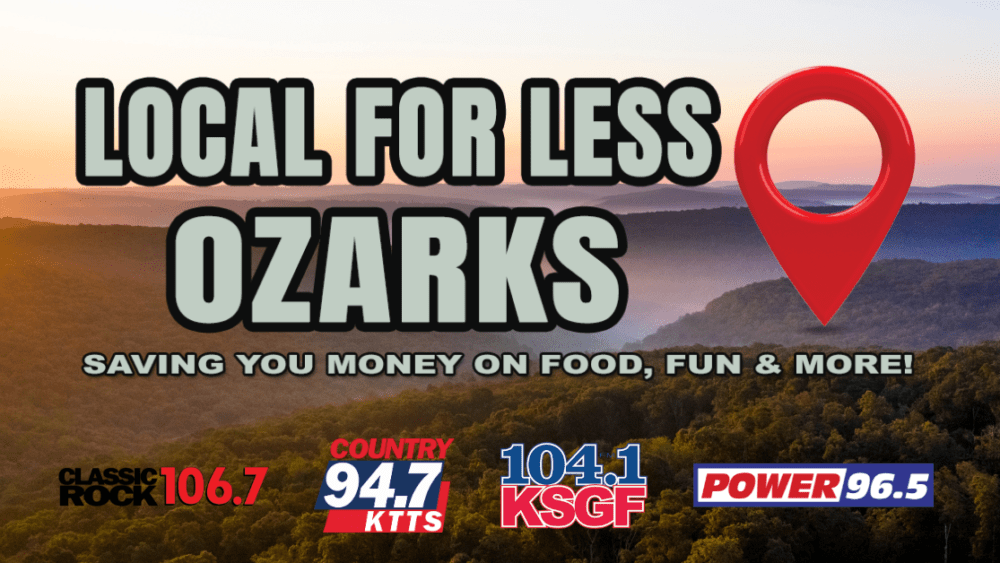The Springfield-Greene County Health Department says it supports the recommendation issued by Governor Parson earlier today.
“As we are all aware, concerns over COVID-19 continue to grow across the state and the nation. In accordance with CDC recommendations, my administration and I strongly urge the cancellation or suspension of public gatherings of 50 individuals or more with the exception of educational institutions, daycare facilities, and business operations,” Governor Parson said.
“We encourage local governments and health agencies to provide the same guidance. To protect our elderly citizens and those with underlying medical conditions, we would ask them to avoid public gatherings as much as possible.”
The Governor added it takes everyone at a local, state, and federal level to work to stop this virus–including families and fellow citizens.
Mayor Ken McClure issued his own statement Sunday evening about the necessity of keeping other people safe.
“We understand that this may cause us to suspend the beloved traditions we have come to know and treasure. The celebrations. The long-awaited family gatherings. The big playoff games. Because those things that define us as a community are also unfortunately, a means to make us sick,” he said in an official statement.
The CDC says it recommends that for the next eight weeks, organizers cancel or postpone in-person events that consist of 50 people or more throughout the United States.
That recommendation currently does not apply to schools, institutes of higher learning, or businesses. The recommendation is made to target the introduction of the virus into new communities and to slow it down.
(click here for a link to Springfield Health Department’s guide on cleaning and other health practices if events do go forward.)
For those who are in high risk group–that is if you are 60 or older, you have a chronic illness, or are immune-compromised–you are advised to take precautions.
- Stay home as much as possible and avoid unnecessary travel
- Take extra measures to put distance between yourself and other people.
- Consider alternative ways of getting food and supplies brought to your house through family, social, or commercial networks or by using delivery or pick up services at stores.
- Have a plan if you get sick (fever, shortness of breath, cough):
- Consult with your health care provider for more information about monitoring your personal health for symptoms suggestive of COVID-19.
- Stay in touch with others by phone or email. You may need to ask for help from friends, family, neighbors, community health workers, etc. if you become sick.
- Determine who can provide you with care and bring supplies if your caregiver gets sick.
- Have supplies on hand
- Contact your healthcare provider to ask about obtaining extra necessary medications to have on hand in case there is an outbreak of COVID-19 in your community and you need to stay home for a prolonged period of time.
- If you cannot get extra medications, consider using mail-order for medications.
- Be sure you have over-the-counter medicines and medical supplies (tissues, etc.) to treat fever and other symptoms.
- Have enough household items and groceries on hand so that you will be prepared to stay at home for a period of time.
- Take everyday precautions
- Avoid close contact with people who are sick
- Clean your hands often
- Wash your hands often with soap and water for at least 20 seconds, especially after blowing your nose, coughing, or sneezing, or having been in a public place.
- If soap and water are not available, use a hand sanitizer that contains at least 60% alcohol.
- To the extent possible, avoid touching high-touch surfaces in public places – elevator buttons, door handles, handrails, handshaking with people, etc. Use a tissue or your sleeve to cover your hand or finger if you must touch something.
- Wash your hands after touching surfaces in public places.
- Avoid touching your face, nose, eyes, etc.
- Clean and disinfect your home to remove germs: practice routine cleaning of frequently touched surfaces (for example: tables, doorknobs, light switches, handles, desks, toilets, faucets, sinks & cell phones)
- Avoid crowds, especially in poorly ventilated spaces. Your risk of exposure to respiratory viruses like COVID-19 may increase in crowded, closed-in settings with little air circulation if there are people in the crowd who are sick.
- Watch for symptoms
- Pay attention for potential COVID-19 symptoms including, fever, cough, and shortness of breath. If you feel like you are developing symptoms, call your doctor.
- If you develop emergency warning signs for COVID-19 get medical attention immediately. In adults, emergency warning signsinclude:
- Difficulty breathing or shortness of breath
- Persistent pain or pressure in the chest
- New confusion or inability to arouse
- Bluish lips or face
The DHSS hotline for questions regarding the Coronavirus is 877-435-8411.
The CDC’s official page on the coronavirus is linked here.






